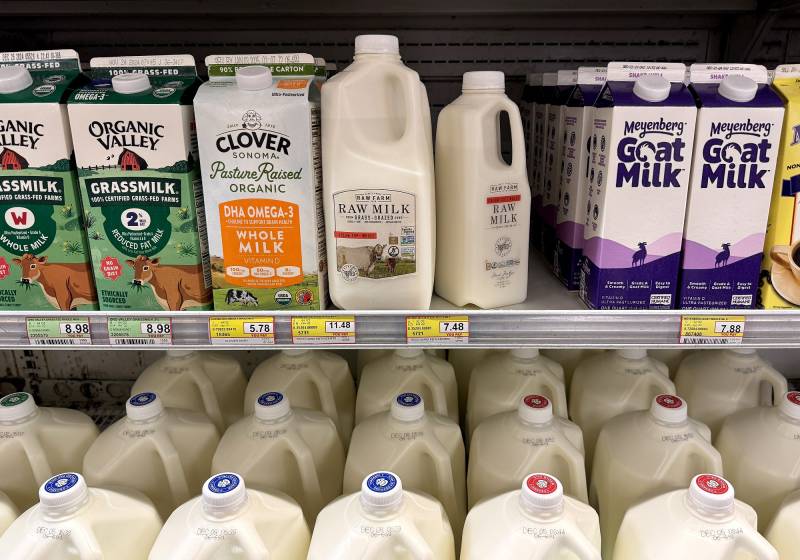Once bird flu was detected in the state’s dairy herds, the California Department of Food and Agriculture began weekly testing at farms. With about one-third of California’s dairy herds now affected, local public health officials began inspections of their own.
According to CDPH, the County of Santa Clara Public Health Laboratory has been testing raw milk products in retail stores as a second line of consumer protection. On Nov. 21, a PCR test found genetic traces of bird flu in a jug of raw milk.
In an interview with KQED, Raw Farm CEO Mark McAfee pointed out that the sample did not contain the live virus. He added that even if the genetic material could be cultured and grown into a live virus, there is no evidence that cow milk transmits bird flu to humans.
“Remember, the current thinking from the FDA is that this is a terrible virus. You don’t want to have anything to do with it because it may make you sick,” he said. “Well, there’s no evidence of that. Show me one person that’s gotten sick across the United States from consumption of raw milk.”
Kennedy has said that he drinks raw milk. In a May advisory on the dangers of raw milk, the FDA stated that unpasteurized milk “can harbor dangerous germs that can pose serious health risks.”
“This is a very inconvenient truth time, as Al Gore would say. This is a time of battle between RFK — Bobby Jr. Kennedy — and the FDA,” insisted McAfee, who said the company’s raw milk continues to sell. “We have never been worse off in America in our health because our gut microbiome, which is 80% of our immune system, is shot. We want to build that back better by building back all the elements found in raw milk.”
Maurice Pitesky, a bird flu expert and an associate professor at the UC Davis School of Veterinary Medicine, maintains that raw milk should not be sold.
Since 2021, he has witnessed bird flu spread from a small cluster of cases among wild birds in eastern Canada to the West Coast, evolving along the way. It is now believed to cause not only respiratory symptoms but also conjunctivitis, commonly known as pink eye, which is likely transmitted through close contact with infected animals.
“Are we going to put a little warning label that says, ‘Don’t rub this milk accidentally on your eyes?’” Pitesky said. “To me, that just seems like we’re playing with fire a little.”
Since early October, California has reported 29 confirmed human cases of bird flu, according to CDPH. Of those cases, 28 people had direct contact with infected dairy cows and all cases had mild symptoms, primarily eye infections. None required hospitalization.
Last week, California public health officials identified a possible case of bird flu in a child in Alameda County.
To date, there has been no person-to-person spread in the state or the country, according to CDPH.


